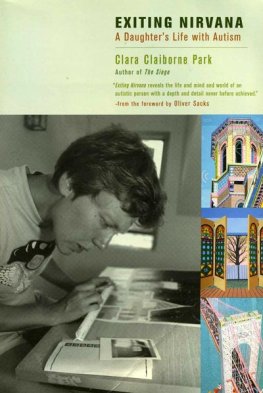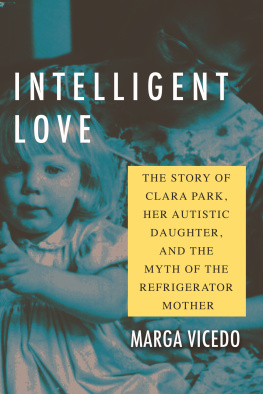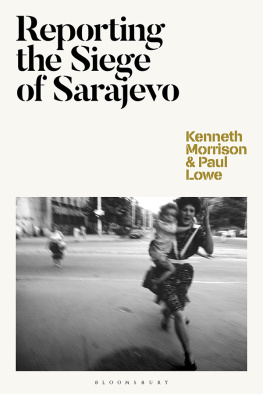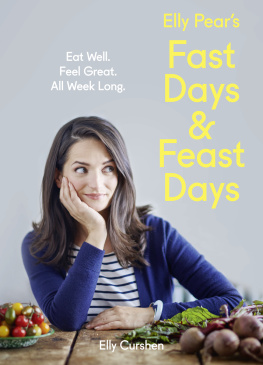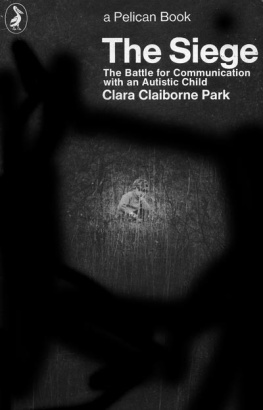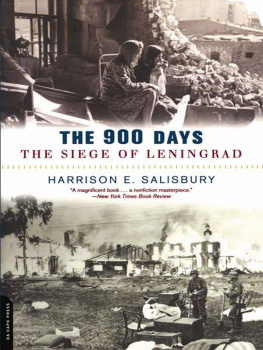To those behind walls,
and to all their besiegers
"The Siege is the story of how a devoted mother, refusing to be discouraged, has accomplished miracles in fostering the intellectual, social, and emotional development of her autistic daughter".
Benjamin Spock, M. D.
"The Siege has much to tell us about how different we are from one another and how alike; about the limits of teaching and the possibilities of a familys love".
Brina Caplan, The Nation
"Beautiful and intelligent One of the first personal accounts of autism,and still the best".
Oliver Sacks in An Anthropologist on Mars
We start with an image a tiny, golden child on hands and knees, circling round and round a spot on the floor in mysterious self-absorbed delight. She does not look up, though she is smiling and laughing; she does not call our attention to the mysterious object of her pleasure. She does not see us at all. She and the spot are all there is, and though she is eighteen months old, an age for touching, tasting, pointing, pushing, exploring, she is doing none of these. She does not walk, or crawl upstairs, or pull herself to her feet to reach for objects. She doesnt want any objects. Instead, she circles her spot. Or she sits, a long chain in her hand, snaking it up and down, up and down, watching it coil and uncoil, for twenty minutes, half an hour until someone comes, moves her or feeds her or gives her another toy, or perhaps a book.
We are a bookish family. She too likes books. Rapidly, expertly, decisively, she flips the pages, one by one by one. Bright pictures or text are the same to her; one could not say she doesnt see them, or that she does. Rapidly, with uninterrupted rhythm, the pages turn.
One speaks to her, loudly or softly. There is no response. She is deaf, perhaps. That would explain a lot of things her total inattention to simple commands and requests, which we thought stubbornness; the fact that as month follows month she speaks no more than one word or two, and these only once or twice in a week; even, perhaps, her self-absorption. But we do not really think she is deaf. She turns, when you least expect it, at a sudden noise. The soft whirr as the water enters the washing machine makes her wheel round. And there are the words. If she were deaf there would be no words. But out of nowhere they appear. And into nowhere they disappear; each new word displaces its predecessor. At any given time she has a word, not a vocabulary.
Twenty-two months. Still not walking, talking, or responding to speech. The doctor is worried, she is observed for three days in the hospital. There they find no evidence of phenylketonuria, or any other physical deficiencies. (From babyhood she had been unusually healthy; her temperature had never even risen high enough to tempt me to take it. ) The doctors watched her, remote and withdrawn in her hospital crib. She would not let the nurses feed her. They smiled at her; she looked through them. The doctors spoke; she heard nothing. They whistled; she turned round. Her movements were quick, decisive; her expression, alert. They told us she was still within the curve of normal development, although at the very bottom; we should wait six months and then begin to worry. She seems like a child who has been raised very much alone.
Alone? In a house with three older brothers and sisters, neighbours children constantly in and out? She was alone, but she created her aloneness, sought it, guarded it. When we put her on the floor to watch the children play, she grizzled and fretted. Crawling in the garden, alone in her crib, she was happy. I would put her in for a nap after lunch. At five she would still be content there sleeping, bouncing, laughing, rocking, back and forth, back and forth. I began to realize that I could put her there with a supply of food and drink and she would never be ready to come out. She sought enclosed spaces; every time she saw a playpen, she tried to get in. If there was no physical fence between her and the world, she erected one. She looked through human beings as if they were glass. She created solitude in the midst of company, silence in the midst of chatter.
Another image; she is at the beach, two years old now, walking easily (when she was ready, she simply began; there was no physical difficulty, there never had been any). A bronzed, gold baby of unusual beauty, she walks along the sand. Many people are looking at her because she is so pretty, but she is looking at no one. On she walks, into family groups, by picnic baskets, sand castles, and buckets. She grazes human beings by a quarter of an inch. You would think she did not see them. But she does see them, because no matter how close she comes, her eyes fixed, it seems, on some point beyond them or to one side, she never touches them. On she goes. The beach is lonelier down this way. The blank sand stretches into the distance. Her silhouette, small to start with, grows smaller and smaller. When I can hardly see her, I begin to run. She might have walked straight ahead, delicately swerving to avoid an occasional collision, without a backward look, for ever, so little did she need of human contact.
Once a friend, seeing for the first time her pale skin and straight yellow hair, her clear blue eyes and the dancing grace of her body, called her a fairy child. And there was a fairy lightness in her movements, a fairy purity in her detached gaze. As time passed and she grew taller, leaner, older, her face seemed not to record times passage. She carried none of the stigmata of the defective; nothing distinguished her from other children except that in some undefinable way she looked younger. The Irish name for fairyland is the Land of Youth. There live the Good People, who bear the human shape without the burden of the human heart. There is no malice in the Good People; they do not will the pain they cause to others. If they seem cruel, it is not real cruelty only a certain remoteness, an inability to comprehend our desires, our needs, and our warmth. It is because the fairies have no hearts that they do not grow old. Ellys eerie imperviousness, her serene self-sufficiency, belonged to those who, like the fairies, can live somehow untouched by the human experience.
Young children are a complex of needs and desires. They find themselves fed, clothed, kept clean, but that is only the barest beginning of what they want. They want sisters cookie, they want the toy thats out of reach, they want a ride in the wagon. Mommy I need I want Give me . things, attention, love. It is hard to remember the first stirrings of doubt about a baby, but I remember a day when I took Elly to the supermarket. She was nineteen months old. She sat in the shopping cart, alert and intent, her eyes taking in the objects on the shelves as she rolled along. We passed a friend with her little girl, just Ellys age. I looked at the child carefully. My friend had had a difficult delivery. Transfusions had been necessary, the baby had lacked oxygen. There had been some anxiety that the brain had been affected. The little girl looked fine, however; sitting up in her cart, she had Ellys alertness but not her gravity. She turned, she looked up at her mother. As I watched, I saw her point to a box of candy.
I thought then that I had never seen Elly point.
To point is so simple, so spontaneous, so primary an action that it seems ridiculous to analyse it. All babies point, do they not? To stretch out the arm and the finger is symbolically and literally, to stretch out the self into the world in order to remark on an object, to call it to anothers attention, perhaps to want it for oneself. From pointing comes the question Whats that? that unlocks the varied world. To point, to reach, to stretch, to grab, is to make a relation between oneself and the outside. To need is to relate.


